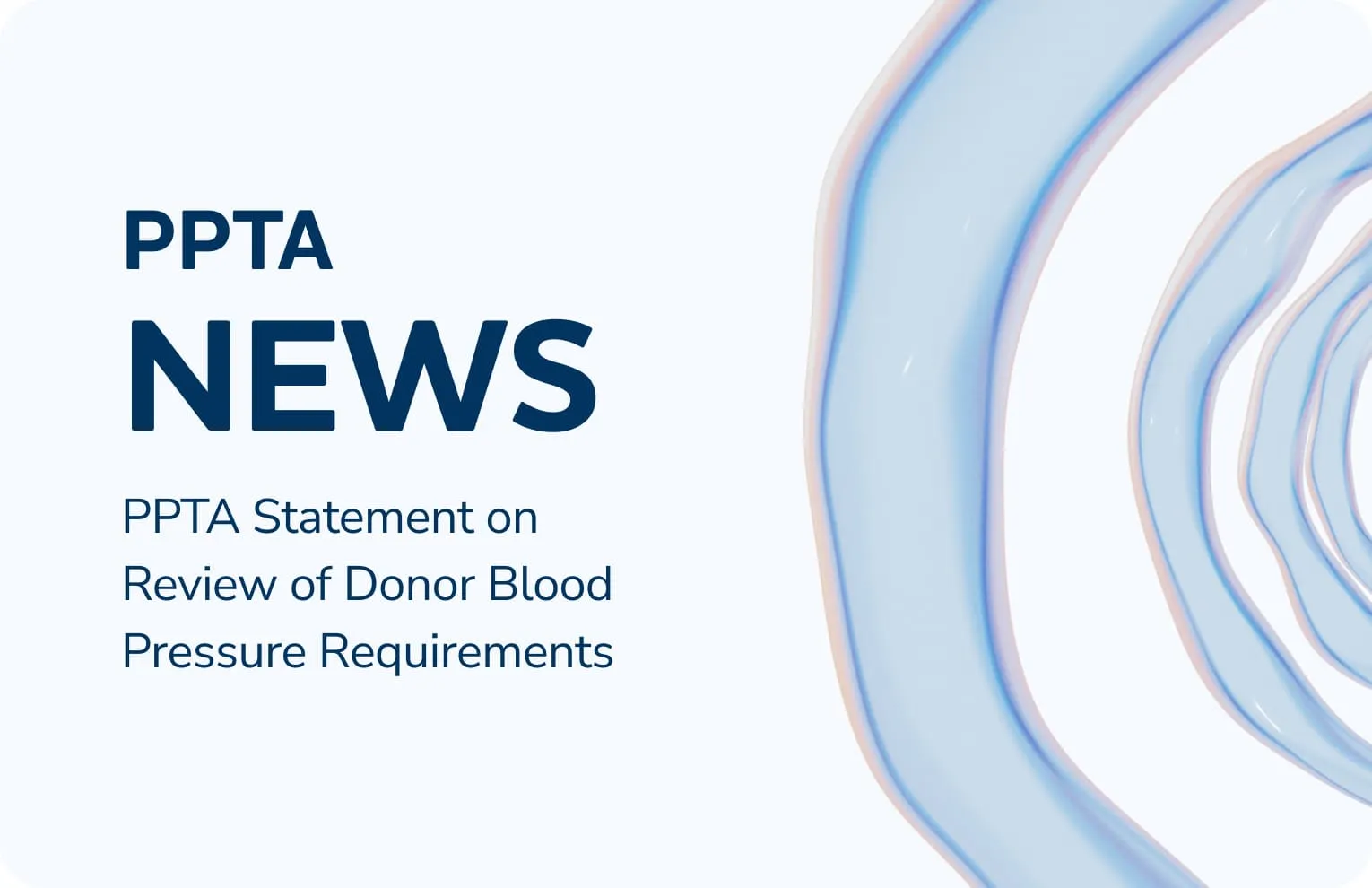June 25, 2025
In our latest interview, PPTA President & CEO Anita Brikman speaks with Heinz Stutzenberger, Ph.D., Vice President of the Alpha-1 Europe Alliance, about his personal connection to the Alpha-1 community and his efforts to raise awareness for those living with the disease.
Heinz offers a powerful perspective on the realities of caregiving and what changes he hopes to see with Alpha-1 therapies in the future.
Click here the watch the interview.
Anita Brikman: Can you share your personal connection to the plasma community and how your wife's experience shaped your involvement with Alpha-1 Europe?
Heinz Stutzenberger: Diagnosis is where we were completely helpless – because her doctor could not explain what it meant.
We were looking for advice on how to handle this disease, and it was the Alpha-1 German association that heard us. The President gave us good personal advice, and they have a very interesting internet site where you can find all the information that you need, but you must first find their internet site.
My wife is not yet on augmentation therapy because her lungs are still good enough. So, she does not fulfill the requirement – but we know that there's only one direction with this disease. It will always get worse. It will not get better. When her lung function has decreased, she will then get the therapy that will slow down the progression of lung decline.
Anita Brikman: How is she doing today?
Heinz Stutzenberger: She's doing fine today. Quite fine, today, because we have learned how to handle this disease. The problem is that, from time to time, exacerbations do occur. That means the conditions become dramatically worse.
Lung infection or bronchiectasis does occur, and in those periods of infection, the patients are doing very bad. My wife had been hospitalized twice in a critical stage, but now we know how to handle it. We see the signs when the cough becomes more severe.
Then, we can intervene very soon because we have the antibiotics with us. So, in the meantime, we have learned how to handle the problems. Happily enough, she has not been hospitalized for the last three or four years.
Anita Brikman: Which is a wonderful outcome – but it also speaks to how important education and awareness are. If people don't know, they don't know how to manage the disorder.
Heinz Stutzenberger: And this is what you learn in this community. This is what we learned, and I thought we should give something back. I'm retired now, so I have a little bit of time. I have talent that can help in those organizations, and that's why we joined it.
Anita Brikman: That's wonderful. When someone is diagnosed with a rare disease, there are a circle of people around them who also must learn about what this means and how life-changing it is. What has your journey been like as a caregiver and as a husband?
Heinz Stutzenberger: At first, those times when my wife was in the hospital were quite hard.
The disease was life-threatening, so you hope for the best, but you cannot be sure that the outcome is good. Those two episodes went quite well, and since that, we are very cautious that she does not catch a lung infection. That means we avoid things.
We do not go to concerts anymore because she's coughing and people don't like it. We avoid crowded rooms. The most severe restriction is if we want to see our grandchildren. They cannot have an infection because, otherwise, the risk is too large.
This is, at the moment, the most severe restriction that we have.
Anita Brikman: I can imagine, especially for grandparents. Earlier, before we started this interview, we were talking about the disparity in plasma-derived therapies being available in some countries and not others. What do you hope to see changed in the future when it comes to access to plasma-derived therapies for Alpha-1?
Heinz Stutzenberger: This is one of our goals for the Alpha-1 Europe Alliance – to make the therapy available all over Europe – but it is very difficult and long-lasting work. We will most certainly not be successful in every country, but you try. We will at least try by collecting arguments, preparing patient organizations in those countries to have a good position in the discussion. So far, it seems to be very hard. Those that succeeded had a long journey. Hopefully we will have a successful journey as well.





